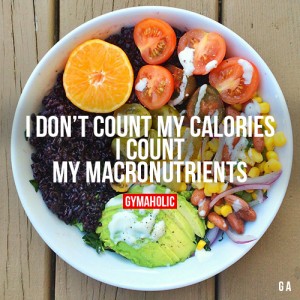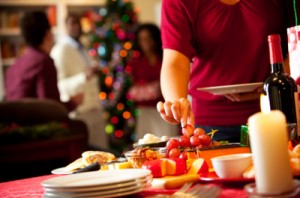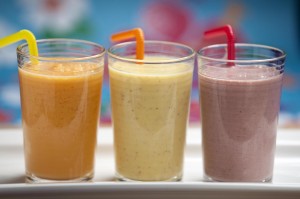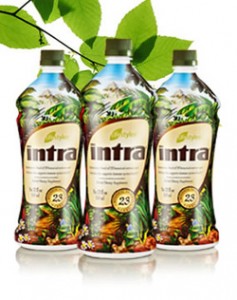 Why is it that when it comes to dieting, everybody automatically thinks they have to suffer and deprive themselves from everything in life? Why is it that people think they can’t have the foods they love and crave in moderation? Why does the word “dieting” have to be portrayed as suffering?
Why is it that when it comes to dieting, everybody automatically thinks they have to suffer and deprive themselves from everything in life? Why is it that people think they can’t have the foods they love and crave in moderation? Why does the word “dieting” have to be portrayed as suffering?
We really don’t have a clear cut answer to this, but we feel a big part has to do with the  personality of people feeling like they need to suffer as much as possible on a diet to say they did everything in their power to try and accomplish their goal, even if they didn’t accomplish it entirely.
personality of people feeling like they need to suffer as much as possible on a diet to say they did everything in their power to try and accomplish their goal, even if they didn’t accomplish it entirely.
It’s almost like a sneaky excuse to why one didn’t accomplish their goal 100% of the way. Whether it’s losing a few pounds to look good on the beach, dropping some fat for a photo shoot, or dieting down to low body fat levels for a contest, it just seems that people need to endure some sort of agony when it comes to dieting.
We don’t believe in making people suffer when it comes to diets or we would never encourage people to suffer just for the sake of suffering. We believe in suffering for an outcome or for optimization. This is a huge problem, people being intimidated by dieting and they automatically get the assumption that dieting is going to be painful and that they are going to have to suffer so much to where it’s intolerable.
It’s funny how people think this way because there are kids and families in third world countries out there that are suffering from starvation and we want to be scared of going on a diet because we think we are going to have to suffer so mightily?
There are a lot of people at fault for this, such as:
- The internet
- Magazines
- Cheesy infomercials
- So called ‘nutrition experts’ aka guru’s and Broscientists,
- Gym know it all’s
We know this because we were victims once to all of this non-sense when it came to dieting. We tried the following:
- A low carb cookie cutter diet out of a magazine 5 years ago and lost almost all the muscle we put on over the winter
- We tried eating a so called “clean” diet where it consisted of all the traditional body building foods (lean proteins, sweet potatoes, brown rice, vegetables, etc) and that drove us crazy because we were kicking ourselves in the ass every time we ate something non-traditional aka dirty.
- We then tried eating basically anything we wanted and that went south of the border because we put on excess fat and couldn’t get lean enough without sacrificing muscle loss when it came to dieting down for summer.
So we were intimidated and manipulated too by the word “dieting” because we thought it solely consisted of eating nothing but “clean” foods and we felt we had to suffer on these strict diets,  but we found a middle ground after 5 years of self-experimentation and trial and error. That middle ground being you can still have the foods you like and enjoy, so long as you are hitting your macronutrient numbers and total fiber number. We talked about this in great detail in our blog “Why count your macronutrients.”
but we found a middle ground after 5 years of self-experimentation and trial and error. That middle ground being you can still have the foods you like and enjoy, so long as you are hitting your macronutrient numbers and total fiber number. We talked about this in great detail in our blog “Why count your macronutrients.”
We know everyone won’t agree with us on this, but we feel that it is so essential to count your macros because you can have all the foods you like and you don’t have to suffer by eating traditional dieting foods day in and day out. Some of the following reasons why we’re such huge proponents to counting macros are:
- It teaches you discipline
- Allows you to eat the foods you like while still dieting
- It allows you to experiment with recipes that contain healthy ingredients
- It gives you less of a tendency to go out and cheat
- You will be amazed at how much you learn from tracking your food
- You will learn a lot about nutrition and what your body responds well to
Basically, cookie cutter diets out of books, magazines, and websites will eventually be a recipe for disaster. Who the hell wants to eat the same thing every single day? For more info on why cookie cutters just don’t work, see our video here.
Now please don’t get us wrong here, we don’t recommend going out and eating pizza or cheese burgers and fries to hit your macros, we still believe in whole and minimally refined foods will build quality muscle and you can see that here on our video “Macronutrient recommendations.”
You can still include the foods you like into your diet, as long as you hit your macro and fiber numbers and the reason being that the muscle only sees amino acids, carbs, lipids, and some short chain fatty acid fermentation from fiber. The muscle doesn’t see specific types of foods. So, as long as you’re hitting your protein, carbs, fat and fiber numbers, everything else will become secondary.
We had a couple of our clients eating baked lays and low-fat popcorn for their carbohydrate source after their workouts along with a protein shake. This is perfectly fine to have as long as you are hitting your post workout macro numbers and your fiber number at the end of the day.
Obviously popcorn has like 4 times the amount of fiber content than baked lays, but it’s okay to have baked lays for your carb source as long as you are in range of your target fiber number at the end of the day.
Evidently, someone that eats baked lays for all their carb sources in their meals will not hit their fiber number, so they would be hurting themselves there, unless they got it through fiber supplementation.
Choosing a mix of lower glycemic carbs for your meals which are higher in fiber along with other non-traditional foods is perfectly fine in our opinions and it’s a happy medium. So, our point being, normally people would freak out if you told them they could eat popcorn, baked lays, or even low-fat ice cream in moderation on a diet and that’s because of all the BS out there and because it’s looked at as a non-traditional style of dieting and because people tend to over eat.
There’s times where we have our clients make healthy burritos (shredded chicken, low-fat cheese, black beans, and whole wheat tortillas) or breakfast sandwiches (eggs, low-fat cheese, turkey bacon, and ezekial bread) and it’s perfectly fine because they hit all their macronutrient numbers at each meal. Another thing people really have to understand and consider is that plenty of people get results in spite of what they do, not because what they do is optimal.
It’s important to recognize that everybody has different methods when it comes to dieting and it’s important to not look down on anyone, especially if they are trying to make a change in their health and life. We’re not saying our method is the only one out there and it’s certainly not for everybody. But we’ve seen, experienced, experimented, been mentored, and done a lot of trial and error to lead us to be huge advocates to counting our macros daily and it’s been a very efficient method for us and our clients to be able to diet without suffering and sustain a long term flexible diet.
Take home message is to find a dieting method that works for you and that you will be consistent with day in and day out, week after week, month after month, and year after year. Dietary programs need to be tailored to you based on your body type, activity levels, current metabolism, metabolic/hormonal variances, psychology factors, cultural influence, food preferences, and more. So don’t fall for BS mainstream fad diets or cookie cutter diets from your local Guru’s. You don’t have to fear dieting anymore or suffer with only traditional foods. Just make sure to do your homework before hand, be patient, and always keep in mind that if a diet sounds too good to be true and promises to deliver quick results, then it’s probably BS.
Do you still think you have to suffer while dieting?
References:
Baechle, Thomas R and Earle, Roger W. Essentials of Strength Training and Conditioning/ National Strength and Conditioning Association. USA: 2008 by the National Strength and Conditioning Association
Antonio, Jose et al. “Essentials of Sports nutrition and Supplements.” 2008
About The Authors:
Chris and Eric Martinez, CISSN, CPT, BA, also known as the “Dynamic Duo” operate a world class personal training and online training business “Dynamic Duo Training,” They’re also fitness and nutrition writers, fitness models, and coaches that love helping people reach their goals. Their philosophy is “No excuses, only solutions.”
Visit them at:






